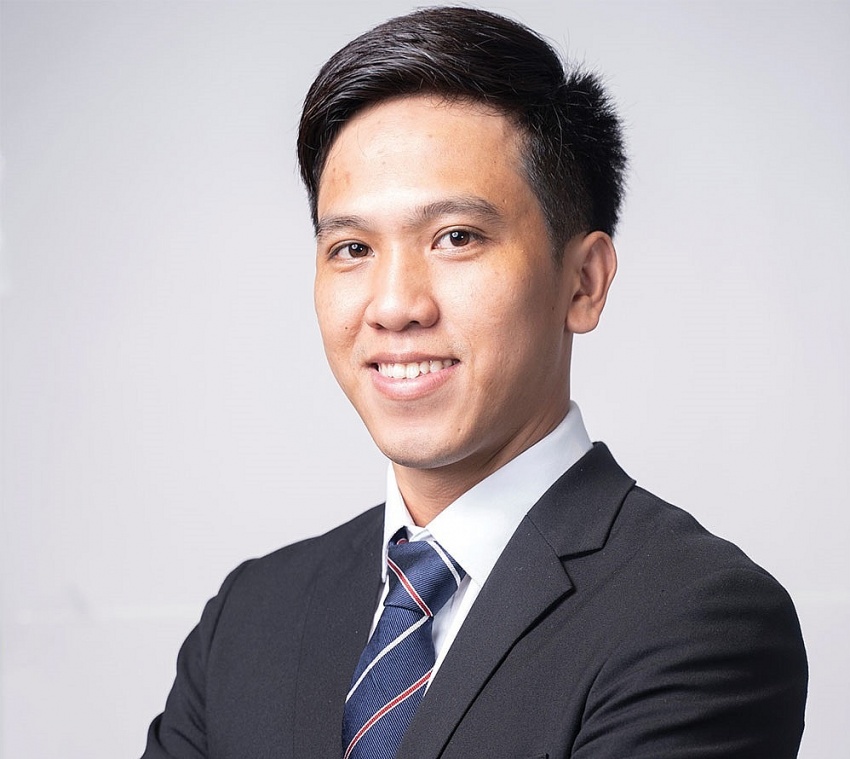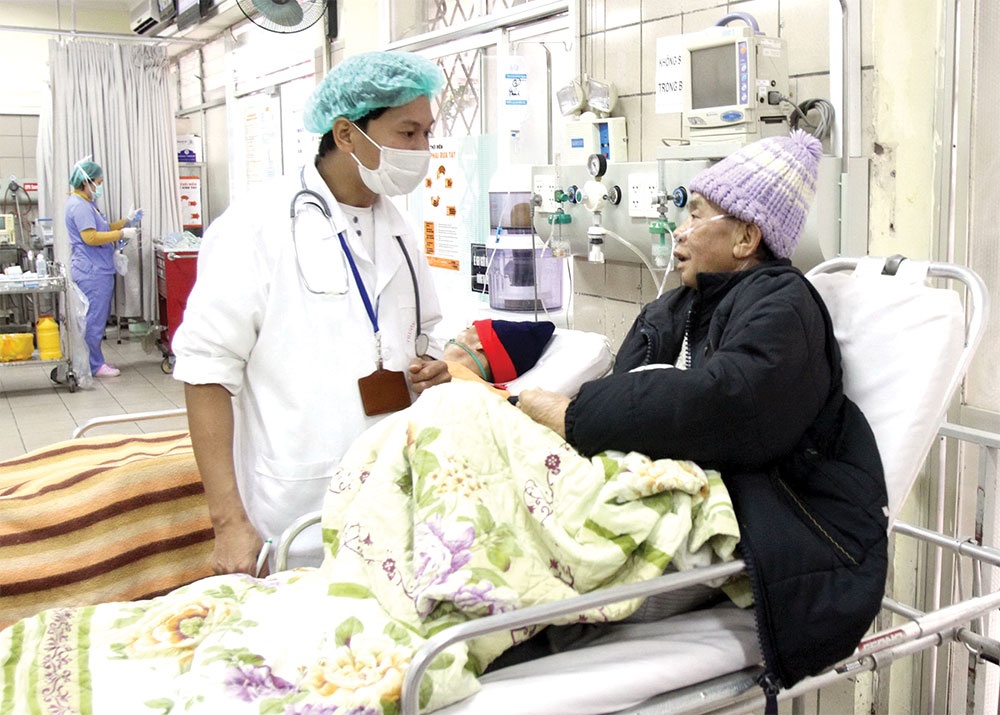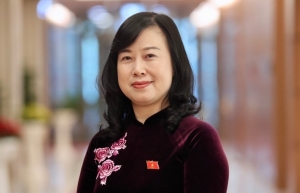Bringing the fresh air to healthcare
 |
| Ngo Thanh Hai, lawyer at LNT & Partners |
Vietnam adopted the Law on Medical Examination and Treatment in 2009. While making some improvements, the rules still show legal problems and barriers which caused issues for businesses and medical facilities to perform.
The revised law 2023 aims to meet the urgent requirements of the market. It comprises 12 chapters and 121 articles, with many new contents, including those on the improvement of medical practitioners’ professional quality and the service quality of facilities, the increase of people’s access to healthcare services, and the renovation of regulations related to conditions to ensure the implementation of medical examination and treatment activities.
The market and businesses see the move as an encouraging signal to promote the development of the market in the months to come. They expect that once it takes into effect early next year, shortcomings and emerging problems in treatment activities will be solved, helping develop and improve the quality of related services towards fairness, high efficiency, development and international integration, while strengthening state management over these activities.
New moves for practitioners
The new law includes expansion of applicants for medical practice licence and the change in the regime of granting them. It has supplemented three titles requiring this, which is clinical nutritionist and outpatient emergency officer and clinical psychologist. Besides that, instead of granting licences based on professional qualifications, the new law regulates that the requirements are now specified for separated titles of applicants.
These changes will make a positive impact on the medical establishment. The expansion of applicants will help increase revenue for such establishments because some practitioners are additionally granted medical licences, which may diversify human resources and service provision capabilities, and also improve service quality.
In addition, the change in the regime of granting such licences also helps to improve the capacity of practitioners, creating peace of mind and people’s confidence, which may contribute to increase the demand; reduce unreasonable costs and damage to people due to a weak number of practitioners leading to professional errors, inappropriate indications and treatment, waste, and low efficiency.
These changes also do not create any additional administrative procedures. The change in requirements to obtain a medical licence is also included in the law.
For the change in requirements to obtain such a licence, instead of granting one through examining diplomas and/or licences of practitioners, they must take a capacity examination on treatment held by the National Medical Council. Particularly for herbalists and those providing related services by applying heirloom remedies or therapies, they would be granted on the basis of document examination.
The assessment of the capacity of medical practitioners will help establishments have a high-quality workforce, helping to improve service quality, thereby attracting customers to come for examination and treatment at the facility, which may increase revenues. Simultaneously, the quality of the practitioner’s capacity will contribute to reducing the overload situation at the central-level hospital.
In addition, this change will help medical establishments that have training activities in the health sector to increase revenue from such activities according to social needs.
Foreigners or overseas Vietnamese who wish to practice medical examination and treatment for a long term in Vietnam would have to be proficient in Vietnamese. The requirement would apply to those who provide health check-up and treatment services for Vietnamese patients, except medical services for humanitarian purposes, personnel training, or technology transfer in the healthcare sector.
This change only impacts on the establishments that have foreign practitioners. It will save costs of hiring translators as well as decline costs and compensate for professional errors and complaints brought about through translators. Moreover, such change also helps medical establishments solve the inadequacies related to determining the liabilities of practitioners and translators when incidents occur.
Promulgating such regulation ensures compliance with the constitution and investment legislation, as well as international treaties of which Vietnam is a member.
However, not allowing foreigners to use translators when practising examination and treatment in Vietnam will cost establishments expenditure to train Vietnamese for its foreign employees. If the practitioner does not learn Vietnamese and does not continue to practice, they will have to pay expenses to recruit, arrange and train another practitioner.
A medical licence would be valid for five years and might be extended. However, those applying for extension must satisfy the requirement on updating knowledge. Specifically, they are required to show proof of participation in short-term refresher courses or professional conferences and seminars, scientific researches or teaching activities in relevant fields.
The limitation on the terms of the medical licence helps establishments to ensure and improve the capacity of its employees. Therefore, it can reduce management costs by self-managing practitioners, monitoring conditions.
Moreover, such change may increase revenue for training institutions from organising training courses and continuously updating knowledge for practitioners.
 |
| There are additional requirements for a medical establishment for obtaining an operation licence, such as application of IT systems, Photo Duc Thanh |
Changes and impact
There are additional requirements for a medical establishment for obtaining an operation licence. The application of IT is one of the requirements.
Practitioners will be more convenient in exploiting the patient’s medical history and thereby have a method of diagnosis and treatment suitable for the patient, and at the same time reduce incidents caused by the lack of information about the patient’s health and disease status.
Such change will also help establishments in controlling the quality of practitioners and thereby contribute to improving the quality of exam and treatment service provision.
However, although such a requirement will contribute to reducing the administrative procedures related to the transfer of medical establishments, and the payment of treatment costs, it will change the administrative procedures related to the licensing of operations.
The new rules will also help strengthen the state’s establishments’ self-responsibility. The new law supplements regulations on autonomy, which regulates that the medical establishments are funded by the state to perform their functions and tasks and the rights and responsibilities of autonomous establishments. However, such medical establishments have rights to make their own decisions on organisation and personnel and enlarge professional activities.
At the same time, establishments also have the autonomy in deciding on expenditures, especially in the decision to use its revenues to invest to carry out treatment. Particularly, medical facilities that cover their own investment and recurrent expenditures may decide on the price of related services, but must not exceed the price of services prescribed by the Minister of Health.
The law also requires establishments to self-assess the quality of medical examination and treatment under the quality standards promulgated by the Ministry of Health (MoH) on an annual basis and to update the results of the self-assessment to the information system. And such results serve as a basis for inspection, assessment, as well as publicising information on the quality of medical establishments.
This new regulation has removed the obstacles that have existed in the past. Most of the establishments operate under a partial autonomy mechanism, and there are four hospitals in the pilot scheme of full autonomy. However, such hospitals have, in turn, asked to stop full autonomy and switch to partial autonomy.
The reason is that the institutes have many financial difficulties, they are not allowed to determine the price of treatment services themselves, but must follow the price bracket set by the MoH. Thus, the revised Law on Medical Examination and Treatment has removed these legal obstacles, giving hospitals more financial autonomy.
 | Addressing reforms in Vietnam’s healthcare sector Last year continued to be a time of many challenges for the healthcare sector. Globally, the pandemic remained unpredictable. In Vietnam, the country faced a rise in dengue fever and the risk of dangerous emerging diseases. After three years of fighting the pandemic, more difficulties have arisen. |
What the stars mean:
★ Poor ★ ★ Promising ★★★ Good ★★★★ Very good ★★★★★ Exceptional
 Tag:
Tag:
Themes: Healthcare Platform
- Hanoi intensifies airport monitoring amid Nipah disease risks
- Cosmetics rules set for overhaul under draft decree
- Policy obstacles being addressed in drug licensing and renewal
- Sanofi, Long Chau Pharmacy relaunch medicine blister pack collection initiative
- Takeda Vietnam awarded for ongoing support of Vietnam’s sustainability efforts
Related Contents
Latest News
More News
- The state of play in healthcare M&As (December 16, 2022 | 11:40)
- Advantages of amending Law on Land (September 29, 2022 | 10:24)
- LNT & Partners wins the ALB Vietnam Law Award 2022 (May 30, 2022 | 19:26)
- Navigating legal challenges in healthcare partnerships (May 16, 2022 | 09:35)
- Tactics for US to get ahead in real estate (May 12, 2022 | 13:00)
- The wider benefits of digital signatures in e-transactions (April 18, 2022 | 11:31)
- Interpreting new real estate statutes (August 23, 2021 | 09:20)
- Mitigating procedural delays in pharmaceutical market (July 12, 2021 | 13:00)
- Pros of sandbox regulation for fintech (July 09, 2019 | 13:36)
- Wind power barriers need removing (April 02, 2019 | 09:55)
















 Mobile Version
Mobile Version